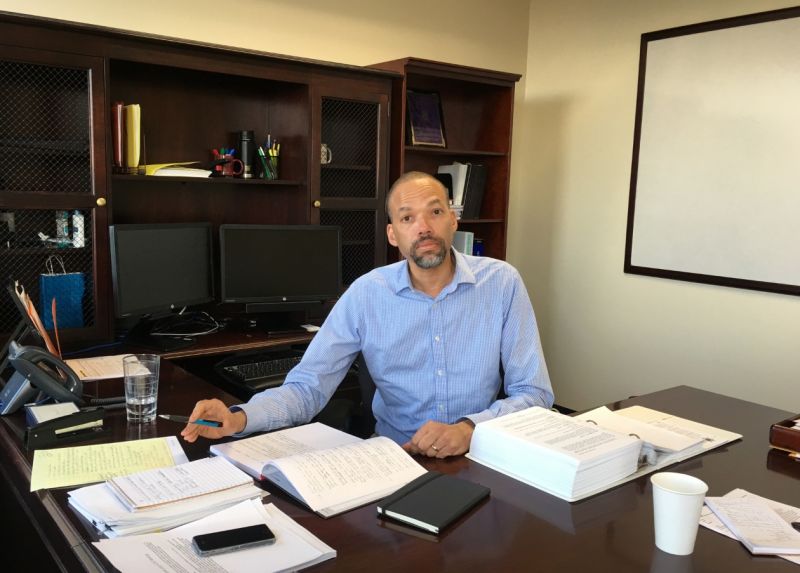Police oversight became Katz's expertise. In 2010 he worked his way as a staff attorney into the Office of Independent Review, the oversight office of the Los Angeles County Sheriff's Department. He was there when the first allegations of law enforcement misconduct under former Sheriff Lee Baca's watch came to light On Wednesday, Baca agreed to plead guilty to a single charge of making false statements as part of a large federal investigation into corruption in his department.
With his extensive background in police oversight, Katz jumped at the opportunity to become San Jose's independent police auditor. He took over the job in January 2016.
"There are very few oversight offices throughout the country which have this long history and are established in the community," said Katz. "I knew I could go into a situation where the foundation had already been laid. [Retired] Judge LaDoris Cordell did a phenomenal job over the last few years of really strengthening this office."
Before Cordell left office, she issued a final report in spring 2015 recommending more sunshine on San Jose Police Department policies and more accountability for the officers' actions. Katz plans to follow through on recommendations to improve how police handle complaints about racial bias. Statistics provided by Cordell showed a disproportionate number of Latinos and African-Americans are stopped and detained by San Jose officers. Katz also wants regular reports documenting use of force because he said a report hasn't been issued since 2008.
Interim San Jose Police Chief Eddie Garcia is looking forward to working with Katz on his recommendations. He said it's a great opportunity for the department to become more progressive.
"We want to be able to come up with things to make this department better before someone else has to come in to make it better," said Garcia. "The federal government has never had to come in, and we'd like to keep it that way."
Garcia said law enforcement experts from the University of Texas at El Paso are coming to San Jose in March to examine the San Jose Police Department's data on stopping suspects and the rate of limited detention. He said they will be meeting with community advocates, focus groups and rank-and-file officers, as well as riding along with police officers.
The San Jose Police Department's evolving body-camera policy is also something Katz will be watching. After a body-camera vendor is selected and the officers are trained, the goal is to outfit every officer with a body camera by the end of June, said San Jose police Lt. Elle Washburn.
Katz helped monitor the body-camera program for the Los Angeles Sheriff's Department when he worked in the county's Office of Inspector General. He said it's a great tool but not a panacea.
"It's going to resolve a lot of complaints in both directions," said Katz. "When I worked in other pilot projects in Los Angeles County, I know some of the feedback I saw from law enforcement officers was, at first they were pretty skeptical about body cameras. But then once they started using them, they really saw the benefit."
He said policies about when the cameras can be turned on and off need to be established, along with at what point an officer will be allowed to see the footage of what was recorded.
Katz has been on the job only a month, but members of the community group People Acting in Community Together (PACT) have high hopes. The Rev. Jason Reynolds of Emmanuel Baptist Church in east San Jose has already met with the new auditor.
"That meeting indicated to me he is very familiar with the police culture overall," Reynolds said. "I'm impressed he's already doing a lot to figure out the police and neighborhood cultures here, which will be very different from Los Angeles."
His hope is that Katz will give the community backup when it has concerns about the police and be objective enough to make solid recommendations in the future.
